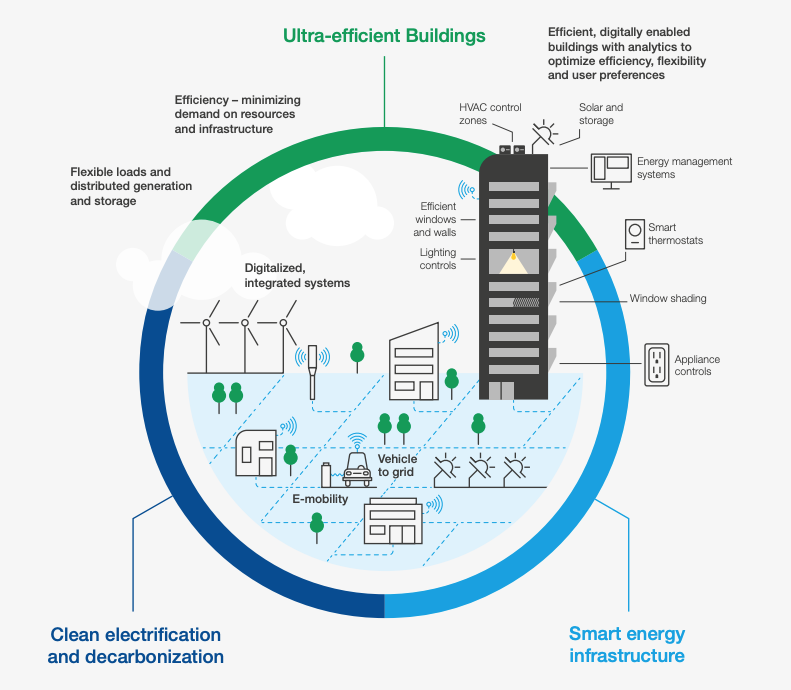Here’s why developed economies must bear the $100 trillion cost of the net-zero transition in emerging markets

Emerging markets need around $94.8 trillion worth of investment to help them transition to a net-zero economy Image: REUTERS/Pilar Olivares

Get involved with our crowdsourced digital platform to deliver impact at scale
Stay up to date:
Climate Crisis
Listen to the article
- Standard Chartered estimates emerging economies need around $94.8 trillion of investment to allow them to meet net-zero targets while continuing to grow and prosper.
- If developing markets bear this cost alone, the global economy will be smaller as a result.
- There is an $83 trillion private investment opportunity between now and 2060, with public-private partnerships crucial to meeting additional funding needs.
Emerging markets need around $94.8 trillion worth of additional investment to help them transition to a net-zero economy by 2060, according to a new study.
This sum - greater than global GDP - is needed to top up existing commitments by emerging market governments and help them meet long-term global warming targets in time, according to data from global bank Standard Chartered.
Developed markets have the most to do to cut their carbon emissions and transition their economies. But, at the same time, they must filter additional funding to less wealthy countries that need this support to grow, prosper and meet their own targets.

Although the scale of investment needed is great, the cost of failing to make it is greater, the report says: “Our research shows that if emerging markets were left to self-finance through higher taxes, this would mean a disruptive transition that could make some of the world’s poorest communities even poorer. The scale of the financing task is simply too great for emerging economies to bear alone.”
What is the Forum doing to help cities to reach a net-zero carbon future?
Developed economies must step up
According to the bank’s calculations, if emerging markets were to raise the additional finance exclusively through higher taxes and borrowing, household consumption would be on average 5% lower per year. This would make emerging-market households around $2 trillion poorer each year between 2021 and 2060. And the impact of this could be to discourage climate action and make transition more likely to fail.

By contrast, if developed markets were to fund the transition cost, it would result in higher household consumption and global GDP being cumulatively raised by $108.3 trillion.
The figures are based on emerging markets making the transition to net-zero by 2060, the developed world reaching net-zero by 2050, and remaining net-negative thereafter.
It notes that African, Asian and Middle Eastern countries are among the most vulnerable to the effects of climate change. And these markets also have some of the most significant changes to make to reach net-zero. They are at an earlier stage in their industrialization and have growing populations, so many are currently heavily reliant on carbon-intensive industries.
Public-private partnerships are crucial
Succeeding in reaching this massive investment target relies on collaboration between the private and public sectors. Standard Chartered has identified a private-sector investment opportunity of $83 trillion between now and 2060.
Supporting and encouraging this investment relies on global decision-makers showing progressive leadership, it says, and local markets need to each have their own net-zero strategies. In addition, we must reach global consensus on areas including climate-risk management and modelling, standards, incentives, carbon pricing and taxation.
Bill Winters, Group Chief Executive, Standard Chartered, said: “Emerging markets need a great deal of investment to transition to net zero and the stakes have never been higher. Without help from developed markets, improvement in emerging-market prosperity could be halted or reversed, which would not only be unjust but would have a hugely negative impact on the world economy.
“However, even more crucially, failure to deliver emerging market transition finance could mean climate goals are missed, triggering an environmental catastrophe. Governments and the financial sector need to come together to help facilitate the flow of investment into emerging markets urgently. Developed market funding could help prevent the worst of global warming, as well as stimulating global GDP.”
The World Economic Forum’s 2022 Global Risks Report highlights “climate action failure” as the number one risk over the coming decade. A disorderly transition would exacerbate a number of long-term risks and have an impact on the ability of organizations to conduct business, causing economic volatility and destabilizing the financial system, it says.
Don't miss any update on this topic
Create a free account and access your personalized content collection with our latest publications and analyses.
License and Republishing
World Economic Forum articles may be republished in accordance with the Creative Commons Attribution-NonCommercial-NoDerivatives 4.0 International Public License, and in accordance with our Terms of Use.
The views expressed in this article are those of the author alone and not the World Economic Forum.
Related topics:
The Agenda Weekly
A weekly update of the most important issues driving the global agenda
You can unsubscribe at any time using the link in our emails. For more details, review our privacy policy.
More on Climate CrisisSee all
Mette Asmussen and Takahiro Furusaki
April 18, 2024
Laia Barbarà and Ameya Hadap
April 17, 2024
John Letzing
April 17, 2024
William Austin
April 17, 2024
Rebecca Geldard
April 17, 2024







